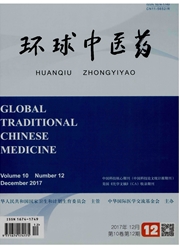

 中文摘要:
中文摘要:
“中医不传之秘在药量”,方药剂量直接影响中医药临床疗效。开展方药量效关系的研究的重要目标在于指导临床合理用量,提高中医药临床疗效。本文就方药量效关系研究的核心概念:“随证施量”及“剂量阈”进行初步阐释,并对方药量效关系研究方法学研究体系的构建及方药剂量理论基本框架等相关问题进行探讨。由于中医方药本身的复杂性,方药量效关系研究中也存在诸多难点和谜团,亟待学者们深入研究,共同探索。
 英文摘要:
英文摘要:
The dosage is thought as the secret of TCM, which affects the clinical effect of TCM directly. The purpose of the dose-response relationship research of TCM is to look for the best or reasonable dosage when treating some diseases, and improves the effects of TCM. There are two important points about the key definitions of the dose-response relationship research, Sui Zheng Shiliang (dosage differentiatioan and treatment) and the dose range. Sui Zheng Shiliang means doctors select the dosage of some herbs in a formula according to the syndrome differentiation of the patients. And the dosage range research of some medica will give the doctor some references in practice. At the same time, some questions about the methodology and framework of the dose-response relationship research of TCM will be discussed in this pa- per.
 同期刊论文项目
同期刊论文项目
 同项目期刊论文
同项目期刊论文
 期刊信息
期刊信息
